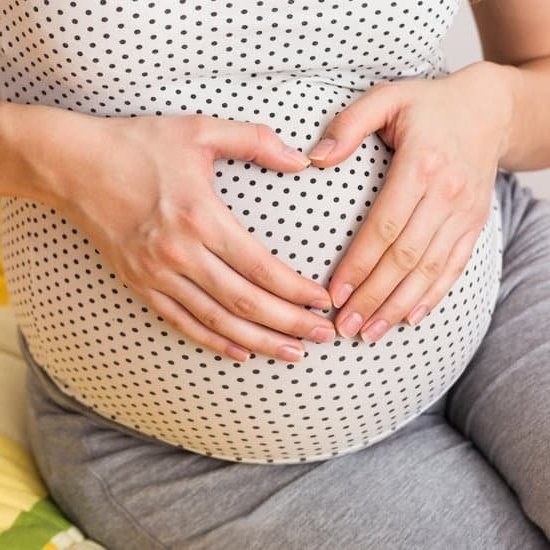Pregnancy is an exciting time for women, but it can also come with a host of new experiences and concerns. One common issue that many pregnant women face is brown discharge. In this article, we will explore the causes of brown discharge during pregnancy and provide tips on how to manage and prevent it. If you’re wondering how to stop brown discharge during pregnancy, read on for valuable information and practical advice.
During pregnancy, brown discharge can be a cause for concern for many women. It’s important to understand what it means and when it may indicate a larger issue. We will delve into the various reasons behind this type of discharge, including hormonal changes, cervical irritation, or potential infections. By understanding the underlying factors contributing to brown discharge during pregnancy, women can make informed decisions about their healthcare.
Identifying when to seek medical help is crucial for pregnant women experiencing brown discharge. While it can be normal in some cases, there are instances when it may signal a more serious problem. We will discuss warning signs that warrant immediate attention from a healthcare provider, ensuring that mothers-to-be have the knowledge needed to prioritize their well-being and that of their baby.
Causes of Brown Discharge
Brown discharge during pregnancy can be concerning, but it is not always a cause for alarm. Understanding the possible causes of this symptom can help ease your worries and guide you on what steps to take. One common reason for brown discharge during pregnancy is implantation bleeding, which can occur when the fertilized egg attaches to the uterine lining. This type of discharge is typically light and may occur around the time of your expected period.
Another potential cause of brown discharge during pregnancy is cervical irritation or infection. As the cervix becomes more sensitive during pregnancy, it is more prone to irritation from sexual activity, pelvic exams, or infections such as bacterial vaginosis or yeast infections. These factors can lead to light spotting or brown discharge.
In some cases, brown discharge during pregnancy may also indicate a miscarriage or ectopic pregnancy. If you experience brown discharge accompanied by severe cramping or abdominal pain, it’s crucial to seek medical help immediately.
| Causes | Tips |
|---|---|
| Implantation bleeding | Rest and avoid strenuous activities |
| Cervical irritation or infection | Avoid intercourse and use unscented hygiene products |
| Miscarriage or ectopic pregnancy | Contact your healthcare provider immediately |
In any case, if you are experiencing brown discharge during pregnancy, it is important to consult with your healthcare provider to determine the cause and receive appropriate guidance on how best to manage it.
When to Seek Medical Help
Knowing the Signs
While brown discharge during pregnancy is common and often harmless, there are certain signs to watch out for that may indicate a more serious issue. If the discharge is accompanied by itching, pain, or a foul odor, it could be a sign of infection. Additionally, if you experience heavy bleeding, cramping, or abdominal pain along with the brown discharge, it is important to seek medical help promptly.
Consulting Your Healthcare Provider
If you are unsure about the cause of the brown discharge or if it persists for an extended period of time, it is crucial to consult your healthcare provider. They can conduct tests to determine the underlying cause and provide appropriate treatment if necessary. It is always better to err on the side of caution when it comes to any abnormal symptoms during pregnancy.
The Importance of Regular Check-Ups
Even if you are not experiencing any concerning symptoms, regular prenatal check-ups with your healthcare provider are essential for monitoring your health and the health of your baby. During these visits, your healthcare provider can address any concerns you have about brown discharge or any other issues related to your pregnancy. These check-ups also allow for early detection and intervention if there are any complications arising from brown discharge or other symptoms.
Overall, while experiencing brown discharge during pregnancy is often normal, it is important to be aware of when it may indicate a larger issue and seek medical help when necessary. Your healthcare provider can offer guidance on how to stop brown discharge during pregnancy and ensure that you have a healthy and safe pregnancy journey.
Home Remedies for Managing Brown Discharge
During pregnancy, experiencing brown discharge can be concerning for many women. This section will explore some natural home remedies that may help alleviate the symptoms of brown discharge and promote overall vaginal health.
Stay Hydrated
One important home remedy for managing brown discharge during pregnancy is to ensure you are adequately hydrated. Drinking plenty of water can help flush out toxins from the body and maintain proper hormonal balance, which can in turn reduce the likelihood of experiencing brown discharge.
Probiotics
Incorporating probiotic-rich foods into your diet, such as yogurt, kefir, and sauerkraut, can help promote healthy vaginal flora and prevent infections that may lead to brown discharge. Probiotics can also support a healthy immune system and aid in digestion, contributing to overall well-being during pregnancy.
Avoid Irritants
It’s essential to avoid using harsh soaps, douches, or scented feminine hygiene products that may disrupt the natural pH balance of the vagina and contribute to brown discharge. Opt for gentle, fragrance-free products to protect vaginal health.
By incorporating these natural remedies into your routine and following good hygiene practices, you may be able to manage and reduce brown discharge during pregnancy. However, it’s crucial to consult with a healthcare provider if you have any concerns or if the brown discharge persists.
Dietary Tips for Preventing Brown Discharge
During pregnancy, hormonal fluctuations can lead to brown discharge. While some causes may require medical attention, there are dietary changes that can help regulate hormonal balance and potentially reduce the occurrence of brown discharge. Here are some foods that may be beneficial:
- Leafy Greens: Spinach, kale, and other leafy greens are rich in vitamins and minerals that support hormonal health.
- Fatty Fish: Salmon, mackerel, and sardines contain omega-3 fatty acids, which can help regulate hormone production.
- Probiotic-Rich Foods: Yogurt, kefir, and sauerkraut can support gut health, which in turn may improve overall hormonal balance.
In addition to these specific foods, maintaining a well-balanced diet with plenty of fruits, vegetables, and whole grains is important for overall hormone regulation. It’s also crucial to stay hydrated by drinking plenty of water throughout the day. Avoiding processed foods and excessive sugar intake is also recommended for hormonal health during pregnancy.
Overall, incorporating these foods into your diet can potentially help regulate hormonal balance and reduce the likelihood of experiencing brown discharge during pregnancy. However, it’s important to consult with a healthcare provider before making any significant dietary changes during pregnancy to ensure the safety and well-being of both you and your baby.
If you’re wondering how to stop brown discharge during pregnancy through diet, talking to your doctor or a registered dietitian can provide personalized guidance based on your individual needs.
Hygiene Practices
Brown discharge during pregnancy can be a cause for concern, but maintaining proper hygiene practices can help reduce the risk of experiencing it. One of the most important steps in preventing brown discharge is to maintain good personal hygiene. This includes regular showers and keeping the genital area clean and dry. Wearing breathable cotton underwear can also help prevent bacterial growth and reduce the chances of developing brown discharge.
In addition to regular hygiene practices, it is essential to pay attention to the products used in the genital area. Avoid using harsh soaps, douches, or scented feminine products, as these can disrupt the natural pH balance of the vagina and lead to an increased risk of infection. Opt for mild, fragrance-free soaps and avoid excessive use of panty liners or pads, as these can trap moisture and create a breeding ground for bacteria.
Proper wiping techniques after using the bathroom are also crucial in preventing brown discharge during pregnancy. Always wipe from front to back to avoid spreading bacteria from the rectum to the vaginal area. It is also advisable to wear loose-fitting clothing that allows for airflow and reduces moisture build-up, which can contribute to bacterial growth.
Relevant Data on Hygiene Practices During Pregnancy
| Hygiene Practice | Effectiveness |
|---|---|
| Maintaining personal cleanliness | Highly effective in reducing bacterial growth |
| Avoiding harsh soaps and scented products | Significantly decreases the risk of disrupting vaginal pH balance |
| Proper wiping techniques | Important in preventing bacterial transfer from rectum to vaginal area |
Lifestyle Changes
During pregnancy, making certain lifestyle changes can help minimize the occurrence of brown discharge. It is important to remember that every pregnancy is different, so what works for one person may not work for another. However, adopting healthy habits can contribute to overall well-being and potentially reduce the risk of experiencing brown discharge.
Here are some lifestyle changes to consider:
1. Exercise Regularly: Engaging in moderate exercise can help improve circulation and hormone regulation, which may in turn decrease the likelihood of experiencing brown discharge during pregnancy. Activities such as walking, swimming, and prenatal yoga can be beneficial.
2. Manage Stress: High levels of stress can impact hormonal balance and overall health. Finding ways to manage stress, whether through relaxation techniques, mindfulness exercises, or seeking support from loved ones, can be beneficial for overall well-being during pregnancy.
3. Get Sufficient Rest: Adequate rest is essential during pregnancy. Fatigue and lack of sleep can place additional stress on the body, potentially leading to hormonal imbalance and other complications. Creating a comfortable sleep environment and prioritizing rest can help support a healthy pregnancy.
Remember that consulting with a healthcare provider before making significant lifestyle changes during pregnancy is crucial. They can offer personalized guidance based on individual health needs and provide recommendations on how to stop brown discharge during pregnancy effectively while ensuring the safety of both the mother and baby.
Consultation With a Healthcare Provider
In conclusion, dealing with brown discharge during pregnancy can be concerning, but it is important to understand that it is not always a cause for alarm. However, it is crucial to stay informed about the potential causes and when to seek medical help. Remember, if you are experiencing any unusual or excessive brown discharge, it is always best to consult with a healthcare provider for proper evaluation and guidance.
While exploring home remedies and dietary tips may provide some relief, they should not replace professional medical advice. Maintaining good hygiene practices and making lifestyle changes can also contribute to minimizing the occurrence of brown discharge. However, these measures should be complemented with regular check-ups from a healthcare provider to ensure the overall health and well-being of both the mother and the baby.
To effectively address the issue of brown discharge during pregnancy, seeking guidance from a healthcare provider is essential. They can offer personalized recommendations and treatment options based on an individual’s specific needs.
By following their professional advice and staying proactive about prenatal care, expectant mothers can navigate this common concern with confidence and peace of mind. Remember that knowing how to stop brown discharge during pregnancy is just as important as knowing when to ask for help in managing it effectively.
Frequently Asked Questions
What Can I Do for Brown Discharge During Pregnancy?
Brown discharge during pregnancy can be caused by a variety of factors, including implantation bleeding, cervical irritation, or hormonal changes. It’s important to speak to a healthcare provider to rule out any potential complications and to get personalized advice on how to manage it.
How Long Can Brown Discharge Last in Pregnancy?
The duration of brown discharge during pregnancy can vary from woman to woman. In some cases, it may only last for a few days, while in others it may persist for several weeks. If you experience prolonged brown discharge, it’s essential to seek medical advice to ensure everything is progressing as it should.
Is There Any Way to Stop Brown Discharge?
While there isn’t a guaranteed way to stop brown discharge during pregnancy, there are steps you can take to potentially reduce it. These may include avoiding sexual intercourse or using gentle cleansing products for personal hygiene.
However, it’s crucial to consult with your doctor before trying any interventions, as they can tailor their advice specifically to your individual circumstances.

Welcome to my fertility blog. This is a space where I will be sharing my experiences as I navigate through the world of fertility treatments, as well as provide information and resources about fertility and pregnancy.





